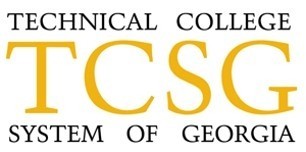According to Dr. Jeffrey M. Humphreys, director of the Selig Center for Economic Growth at the University of Georgia's Terry College of Business, it adds up to more than $76 million - $40.7 by LTC and $35.2 by NGTC.
The economic impact is in a new report from Dr. Humphreys that details his analysis of economic data from the Technical College System of Georgia for the 2012 fiscal year.
"This study validates the tremendous impact of the partnership of mutual support the college nurtures and enjoys with the community," said NGTC President Dr. Gail Thaxton. "For 70 years, residents in North Georgia have depended on this institution to develop the skills they need to grow careers that enable them to provide for their families."
The study also found that the NGTC's spending results in 452 public and private sector jobs. Spending by LTC results in 515 jobs.
Humphreys reported that statewide, for each job created on a TCSG college campus, one off-campus job exists because of college-related expenditures. One in every 264 nonfarm jobs in Georgia, he said, occurs because of spending associated with a TCSG college.
"The fundamental finding is that each of the TCSG colleges...creates substantial economic impacts in terms of output, value added, labor income, and employment. These economic impacts demonstrate that continued emphasis on technical colleges as an enduring pillar of the regional economy translates into jobs, higher incomes, and greater production of goods and services for local households and businesses," said Humphreys.
The TCSG commissioned Humphreys to calculate the importance that spending connected to the state's technical colleges has for their service delivery areas, which range in size from two to eleven counties. Several categories of college expenditures were reviewed for the study, including personnel salaries and fringe benefits, college operations, capital construction projects, and student spending, to name a few.
"As we move forward, the technical college impact will be even greater as 63% percent of the workforce will need some level of education beyond a high-school degree," affirmed NGTC Vice President for Economic Development Dr. Mark Ivester.
Statewide, the $315 million state appropriation for the TCSG in 2012 helped to train almost 153,000 technical college students, contributed to $1.2 billion in direct and indirect spending in communities throughout Georgia, and was a factor in almost 15,000 public and private sector jobs.
"The spending factor alone is a sizable return on the state's investment in the TCSG, and it would be significantly higher if we were to add the economic value that our graduates create once they leave college and meet employers' needs for a skilled workforce," said Ron Jackson, commissioner of the TCSG.
The study did not attempt to measure the value in terms of the increased earnings of TCSG graduates or the colleges' role in helping the state to attract and retain companies with high-skill, good-paying jobs. Nor did it calculate the impact of the TCSG's Quick Start program, a state economic development incentive that provides customized training free of charge to new and expanding businesses.
The full report, The Economic Impact of Technical College System of Georgia Institutions on their Service Delivery Area Economies in FY 2012, is available online at https://tcsg.edu/download/TCSG_Impact_2012_Economic_Activity_1.2014.pdf
The following is a list of the 24 TCSG colleges and their economic and employment impact on their service delivery areas in 2012. (For a map of the colleges' service delivery areas go to https://tcsg.edu/tech_map.php.)
Albany Technical College
$47,378,544
552
Altamaha Technical College
$20,410,617
274
Athens Technical College
$46,716,956
608
Atlanta Technical College
$63,965,060
692
Augusta Technical College
$54,380,987
699
Central Georgia Technical College *
$64,673,414
873
Chattahoochee Technical College
$104,722,504
1,288
Columbus Technical College
$38,156,614
479
Georgia Northwestern Technical College
$68,963,126
886
Georgia Piedmont Technical College
$59,595,578
773
Gwinnett Technical College
$71,377,444
768
Lanier Technical College
$40,741,923
515
Middle Georgia Technical College *
$30,906,755
412
Moultrie Technical College
$26,095,668
371
North Georgia Technical College
$35,266,872
452
Oconee Fall Line Technical College
$30,382,428
442
Ogeechee Technical College
$29,515,195
393
Okefenokee Technical College
$17,807,595
233
Savannah Technical College
$56,935,335
707
South Georgia Technical College
$27,530,288
366
Southeastern Technical College
$30,469,358
402
Southern Crescent Technical College
$71,997,872
881
Southwest Georgia Technical College
$21,371,303
265
West Georgia Technical College
$65,357,646
911
Wiregrass Georgia Technical College
$55,199,383
757
TCSG System Total
$1,179,918,464
14,997
*colleges merged as the new Central Georgia Technical College in July 2013

http://accesswdun.com/article/2014/3/272092
